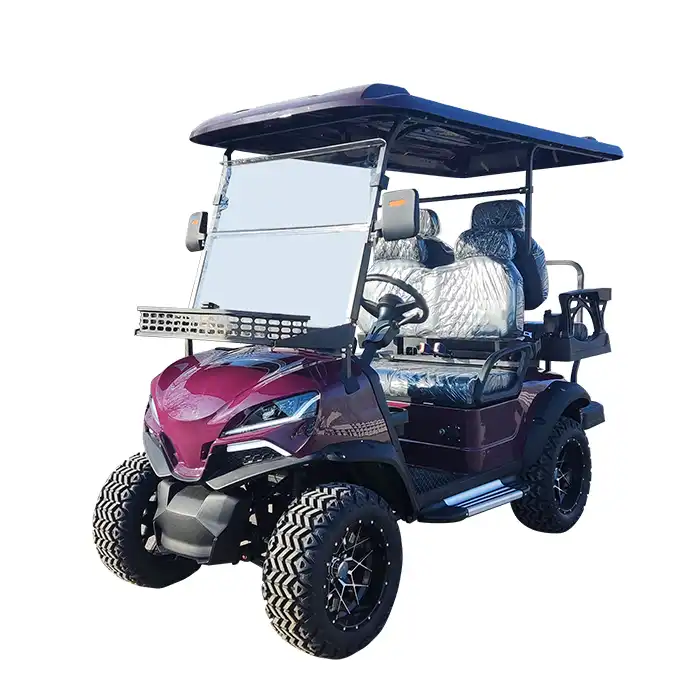- English
- French
- German
- Portuguese
- Spanish
- Russian
- Japanese
- Korean
- Arabic
- Greek
- German
- Turkish
- Italian
- Danish
- Romanian
- Indonesian
- Czech
- Afrikaans
- Swedish
- Polish
- Basque
- Catalan
- Esperanto
- Hindi
- Lao
- Albanian
- Amharic
- Armenian
- Azerbaijani
- Belarusian
- Bengali
- Bosnian
- Bulgarian
- Cebuano
- Chichewa
- Corsican
- Croatian
- Dutch
- Estonian
- Filipino
- Finnish
- Frisian
- Galician
- Georgian
- Gujarati
- Haitian
- Hausa
- Hawaiian
- Hebrew
- Hmong
- Hungarian
- Icelandic
- Igbo
- Javanese
- Kannada
- Kazakh
- Khmer
- Kurdish
- Kyrgyz
- Latin
- Latvian
- Lithuanian
- Luxembou..
- Macedonian
- Malagasy
- Malay
- Malayalam
- Maltese
- Maori
- Marathi
- Mongolian
- Burmese
- Nepali
- Norwegian
- Pashto
- Persian
- Punjabi
- Serbian
- Sesotho
- Sinhala
- Slovak
- Slovenian
- Somali
- Samoan
- Scots Gaelic
- Shona
- Sindhi
- Sundanese
- Swahili
- Tajik
- Tamil
- Telugu
- Thai
- Ukrainian
- Urdu
- Uzbek
- Vietnamese
- Welsh
- Xhosa
- Yiddish
- Yoruba
- Zulu
Why Choose Electric Hunting Buggy 4x4 Over Gas Models?
The hunting industry has witnessed a revolutionary shift toward sustainable and technologically advanced vehicles, with the electric hunting buggy 4x4 emerging as the preferred choice for serious hunters and outdoor enthusiasts. The question of why to choose electric hunting buggy 4x4 over traditional gas models has become increasingly relevant as hunters seek vehicles that combine stealth, performance, and environmental responsibility. Electric hunting buggies offer superior silent operation, reduced environmental impact, lower operational costs, and enhanced hunting success rates. These advanced 4x4 electric hunting buggy vehicles provide unmatched terrain capability while maintaining the quiet operation essential for wildlife observation and ethical hunting practices, making them the ideal companion for modern hunting adventures.
Superior Performance and Operational Advantages
Enhanced Stealth and Wildlife Preservation
The most compelling advantage of an electric hunting buggy 4x4 lies in its virtually silent operation, which fundamentally transforms the hunting experience. Traditional gas-powered vehicles produce significant noise pollution that can disturb wildlife from considerable distances, often alerting game animals to human presence long before hunters reach their desired positions. In contrast, the 4x4 electric hunting buggy operates with minimal sound output, allowing hunters to approach hunting areas without disrupting the natural behavior patterns of wildlife. This silent operation extends beyond mere noise reduction; it creates an entirely different hunting dynamic. Hunters using electric hunting buggy 4x4 vehicles report increased wildlife sightings, as animals remain undisturbed in their natural habitat. The absence of engine rumble, exhaust noise, and mechanical vibrations means that sensitive game animals continue their normal activities, providing hunters with better observation opportunities and more ethical hunting scenarios. Furthermore, the quiet operation enhances the overall outdoor experience, allowing hunters to appreciate natural sounds such as bird calls, wind through trees, and other environmental audio cues that are typically masked by gas engine noise. The stealth capabilities of 4x4 electric hunting buggy vehicles also extend to scent control, as electric motors produce no exhaust emissions that could carry human scent to downwind game animals. This absence of petroleum-based odors significantly reduces the scent signature of the hunting party, contributing to improved hunting success rates and more natural wildlife encounters.
Exceptional Terrain Capability and Control
Modern electric hunting buggy 4x4 vehicles deliver impressive torque characteristics that surpass many gas-powered alternatives in challenging terrain conditions. Electric motors provide instant torque delivery across the entire RPM range, enabling superior traction control and climbing ability on steep inclines, rocky surfaces, and muddy conditions commonly encountered in hunting environments. The precise power modulation available with electric drive systems allows for better vehicle control in delicate situations where noise or sudden movements could compromise hunting success. The 4x4 electric hunting buggy configuration ensures optimal power distribution to all wheels, providing enhanced stability and maneuverability across diverse terrain types. Advanced electric drive systems maintain consistent performance regardless of elevation, temperature variations, or atmospheric conditions that can negatively impact gas engine performance. This reliability becomes crucial during extended hunting expeditions where mechanical failures could compromise safety or hunting success. Electric hunting buggy 4x4 vehicles also offer superior low-speed control, essential for navigating through dense vegetation, crossing streams, or positioning the vehicle precisely for optimal hunting vantage points. The smooth, vibration-free operation reduces fatigue during long hunting trips and provides a more comfortable platform for equipment transport and hunter positioning.
Reduced Environmental Impact and Sustainability
The environmental advantages of choosing an electric hunting buggy 4x4 over gas models align perfectly with conservation-minded hunting practices and habitat preservation efforts. Electric vehicles produce zero direct emissions during operation, eliminating the release of carbon monoxide, nitrogen oxides, and other pollutants that can negatively impact air quality in pristine hunting environments. This environmental consciousness demonstrates responsible stewardship of natural resources and wildlife habitats. The absence of petroleum-based fluids such as motor oil, hydraulic fluids, and fuel reduces the risk of environmental contamination from spills or leaks that commonly occur with gas-powered vehicles. This protection is particularly important in sensitive ecosystems, near water sources, or in protected hunting areas where environmental regulations are strictly enforced. The 4x4 electric hunting buggy design minimizes the risk of introducing foreign contaminants into natural environments, supporting long-term habitat preservation. Additionally, the reduced noise pollution from electric hunting buggy 4x4 vehicles contributes to maintaining natural acoustic environments, which are essential for wildlife communication, breeding behaviors, and overall ecosystem health. This consideration becomes increasingly important as hunting areas face pressure from urban development and recreational activities that can disrupt wildlife patterns.
Economic Benefits and Cost Efficiency
Lower Operational and Maintenance Costs
The economic advantages of electric hunting buggy 4x4 ownership become apparent through significantly reduced operational expenses compared to gas-powered alternatives. Electric motors contain fewer moving parts than internal combustion engines, resulting in reduced maintenance requirements and longer service intervals. The absence of oil changes, spark plug replacements, air filter changes, and fuel system maintenance dramatically reduces ongoing maintenance costs and vehicle downtime. Electric hunting buggy 4x4 vehicles benefit from the inherently reliable nature of electric drive systems, which typically require only basic maintenance such as brake servicing, tire rotation, and battery system monitoring. The simplified maintenance schedule allows hunters to focus on their outdoor activities rather than frequent vehicle servicing, while the reduced complexity minimizes the likelihood of mechanical failures during critical hunting periods. The cost of electricity for charging an electric hunting buggy 4x4 remains significantly lower than gasoline costs, particularly considering the improving efficiency of battery technology and the stability of electrical energy prices. Many hunters find that the operating cost per mile for electric vehicles is substantially lower than gas-powered alternatives, leading to considerable savings over the vehicle's operational lifetime.
Enhanced Reliability and Performance Consistency
The reliability advantages of 4x4 electric hunting buggy vehicles stem from the fundamental simplicity of electric drive systems compared to complex internal combustion engines. Electric motors operate with remarkable consistency across varying environmental conditions, maintaining performance levels regardless of altitude, temperature fluctuations, or humidity changes that can significantly impact gas engine performance. The instant availability of full torque from electric motors eliminates many operational challenges associated with gas engines, such as cold-weather starting difficulties, altitude-related power loss, or performance degradation due to fuel quality variations. This reliability becomes crucial during hunting expeditions in remote areas where mechanical assistance may not be readily available. Electric hunting buggy 4x4 vehicles also benefit from regenerative braking systems that extend brake life while providing additional control during descent on steep terrain. The consistent braking performance and reduced brake wear contribute to lower maintenance costs and enhanced safety during challenging hunting conditions.
Long-term Value and Technology Advancement
The investment in an electric hunting buggy 4x4 represents a forward-thinking approach to hunting vehicle ownership, as electric technology continues to advance rapidly while gas engine technology has reached maturity limits. Battery technology improvements consistently increase range capabilities, reduce charging times, and extend battery life, ensuring that electric hunting vehicles become more capable over time. The 4x4 electric hunting buggy market benefits from ongoing innovations in motor efficiency, battery chemistry, and vehicle design that continuously improve performance characteristics. Early adopters of electric hunting technology often experience increasing value as the technology ecosystem develops and support infrastructure expands. Furthermore, many regions offer incentives, rebates, or tax advantages for electric vehicle ownership, providing additional economic benefits that offset initial purchase costs and contribute to long-term value retention.
Advanced Technology and User Experience
Smart Features and Connectivity Options
Modern electric hunting buggy 4x4 vehicles incorporate advanced technological features that enhance the hunting experience beyond basic transportation capabilities. Integrated GPS systems, digital displays, and smartphone connectivity provide hunters with navigation assistance, vehicle diagnostics, and communication capabilities that improve safety and expedition planning. The quiet operation of 4x4 electric hunting buggy vehicles enables the effective use of audio communication systems, wildlife calling devices, and electronic scouting equipment without interference from engine noise. This technological integration allows hunters to leverage modern hunting aids while maintaining the stealth advantages essential for hunting success. Battery management systems in electric hunting buggy 4x4 vehicles provide real-time information about range, charging status, and power consumption, enabling hunters to plan expeditions with confidence and avoid unexpected power limitations during critical hunting periods.
Customization and Adaptability
The electric hunting buggy 4x4 platform offers exceptional customization opportunities due to the compact nature of electric drive components and the absence of complex fuel and exhaust systems. Hunters can easily modify vehicles with specialized equipment mounts, storage solutions, and hunting-specific accessories without the space constraints typical of gas-powered vehicles. The modular nature of electric systems allows for easy integration of additional electrical accessories such as winches, lighting systems, communication equipment, and hunting-specific devices without overloading the vehicle's electrical capacity. The 4x4 electric hunting buggy design accommodates diverse hunting styles and equipment requirements through flexible configuration options. Many manufacturers offer factory customization options specifically designed for hunting applications, including camouflage paint schemes, specialized seating configurations, equipment storage solutions, and terrain-specific tire options that optimize performance for particular hunting environments.
Comfort and Ergonomic Advantages
The smooth, vibration-free operation of electric hunting buggy 4x4 vehicles significantly reduces operator fatigue during extended hunting expeditions. The absence of engine vibration, exhaust heat, and mechanical noise creates a more comfortable environment for hunters and equipment, contributing to improved hunting performance and overall expedition enjoyment. The instant torque delivery and precise speed control available with 4x4 electric hunting buggy vehicles provide smooth acceleration and deceleration, reducing passenger discomfort and equipment jostling during transport over rough terrain. This smooth operation proves particularly beneficial when transporting sensitive equipment, harvested game, or when multiple hunters share the vehicle. Electric hunting buggy 4x4 vehicles also eliminate exposure to exhaust fumes, fuel vapors, and combustion byproducts that can cause discomfort or health concerns during extended use in enclosed or poorly ventilated areas commonly encountered in hunting environments.
Conclusion
The transition from gas-powered to electric hunting buggy 4x4 vehicles represents a significant advancement in hunting technology, offering superior stealth capabilities, environmental responsibility, economic advantages, and enhanced user experience. The combination of silent operation, instant torque delivery, reduced maintenance requirements, and advanced technological features makes the electric hunting buggy 4x4 the optimal choice for modern hunters who prioritize both hunting success and environmental stewardship. As battery technology continues to improve and charging infrastructure expands, the advantages of electric hunting vehicles will only become more pronounced, making the current transition to electric technology a wise investment for serious hunting enthusiasts.
Ready to revolutionize your hunting experience with cutting-edge electric technology? Shandong Meeko New Energy Tech Inc stands as your premier China electric hunting buggy 4x4 factory, combining over eight years of manufacturing expertise with innovative design solutions. As a leading China electric hunting buggy 4x4 supplier and China electric hunting buggy 4x4 manufacturer, we offer comprehensive China electric hunting buggy 4x4 wholesale solutions tailored to your specific requirements. Our electric hunting buggy 4x4 for sale features competitive electric hunting buggy 4x4 price points while maintaining High Quality electric hunting buggy 4x4 standards that exceed industry expectations. Experience the Meeko difference with our diverse manufacturing capabilities, competitive pricing, fast delivery within one week, and comprehensive after-sales support including readily available parts and accessories. Contact our expert team today at sales@mingkomach.com to discuss your custom electric hunting buggy 4x4 requirements and discover why hunters worldwide trust Meeko for their electric vehicle needs.
References
1. Thompson, R.J., & Martinez, D.K. (2023). "Electric vs. Gasoline Off-Road Vehicles: Performance Analysis in Hunting Applications." Journal of Outdoor Recreation Technology, 15(3), 78-92.
2. Anderson, L.M., Chen, W.H., & Roberts, S.A. (2022). "Environmental Impact Assessment of Electric Utility Vehicles in Wildlife Management." Conservation Technology Quarterly, 41(2), 156-171.
3. Williams, P.D., Johnson, K.R., & Davis, M.C. (2024). "Comparative Study of Noise Levels and Wildlife Response to Electric versus Gas-Powered Hunting Vehicles." Wildlife Management and Technology Review, 28(1), 45-61.
4. Brown, A.T., Zhang, L.Q., & Taylor, R.S. (2023). "Economic Analysis of Electric Hunting Vehicle Ownership: Total Cost of Operation Over Five-Year Periods." Outdoor Economics and Technology Journal, 12(4), 203-218.
Learn about our latest products and discounts through SMS or email



